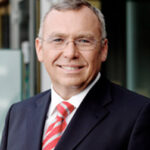Brussels, 29 March 2011 – Promoting the well-being of citizens is one of the aims of the European Union. However, this concept is a complex one and poses challenges for policy-makers. Frequently associated with economic performance and material success, well-being is seldom viewed in relation to social cohesion and the management of diversity.
It is in this framework that the Club de Madrid and the European Policy Center (EPC) organized a Policy Dialogue entitled “Shared Societies and inclusiveness: key drivers for well-being by 2020 and beyond”, in which Alfred Gusenbauer, Former Chancellor of the Austrian Federation and Member of the Club de Madrid, presented for the first time, one of the main outcomes of the Shared Societies Project: The Economic Rationale for Shared Societies.
The “Shared Societies Project”, a key initiative of the Club de Madrid since 2007, provides leaders with greater understanding of the benefits of social cohesion; practical ideas and approaches on how to achieve a shared society; and encouragement and support as they advance towards that goal. The project is designed in the belief that societies are most likely to be peaceful, democratic and prosperous when leaders and citizens recognize the value of diversity and actively build a shared society. The Economic Rationale for Shared Societies, published last week, highlights and disseminates the solid evidence-based arguments that support the relationship between social cohesion and economic growth and well-being. The arguments are formulated and presented in such a way that they are internalized and acted upon by leaders. The Club de Madrid believes that general well being is at least partly dependent on building shared societies and has a positive impact on economic performance.
This event was held March 29th in Brussels. On the panel of experts, together with Chancellor Alfred Gusenbauer, there also was Egbert Holthuis, Head of Unit on Active Social Protection, Social Inclusion Strategy at DG Employment in the European Commission, and Fabian Zuleeg, EPC Chief Economist. The Dialogue was chaired by Hans Martens, EPC Chief Executive.
